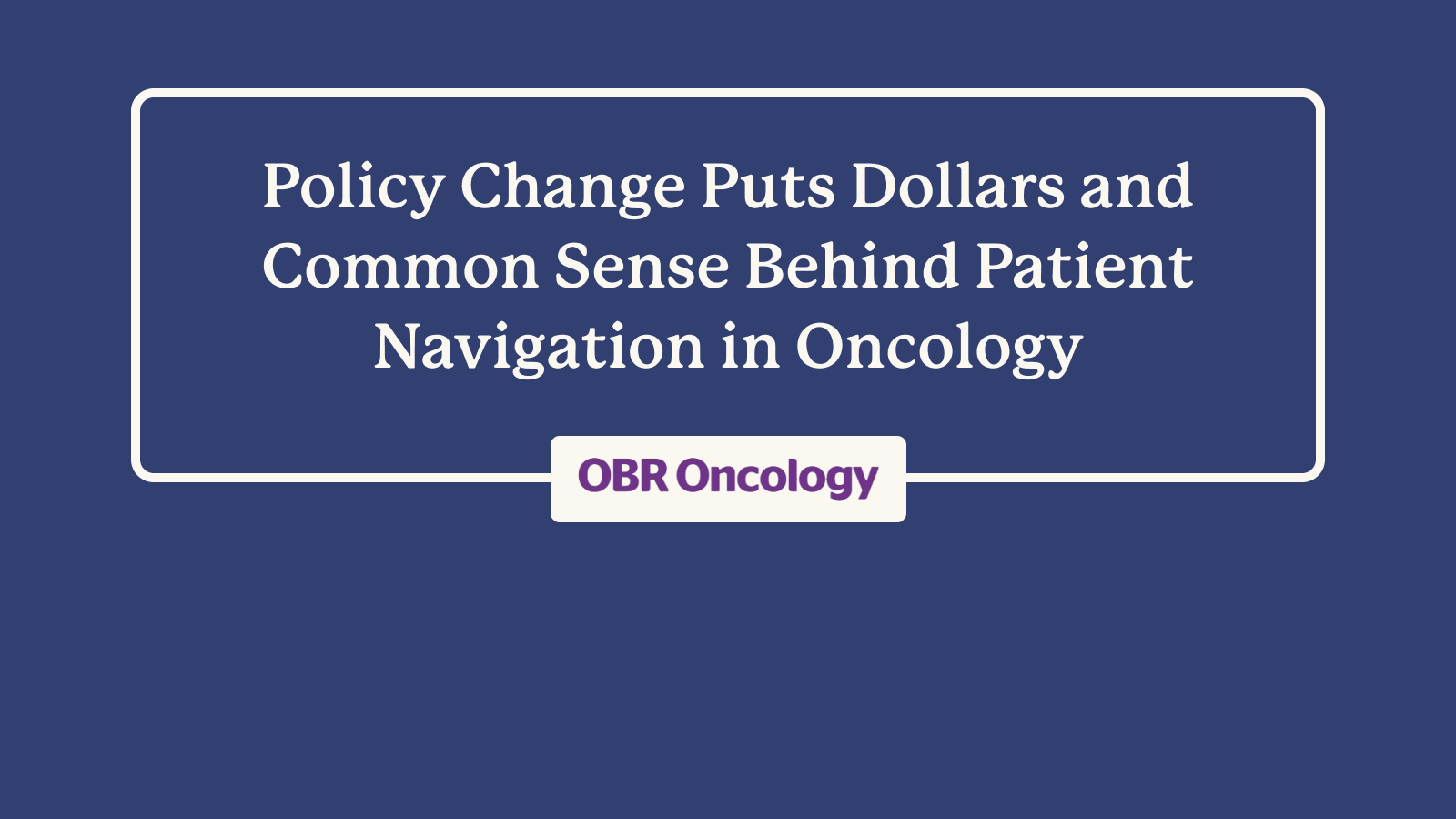Policy Change Puts Dollars Behind Patient Navigation in Oncology
Editor’s Note: This is part of an ongoing series designed for oncologists to share their opinions on key issues. If you would like to submit a commentary for consideration, please contact us.
This past fall, I treated a 70-year-old woman with neoadjuvant chemotherapy for breast cancer. Toward the end of treatment, I referred her to a surgeon in town for a mastectomy. Nearly 3 months later, she showed up back in my clinic, her breast still completely intact. She said that the surgery office had never called her back, and she had just been waiting in limbo. She wasn’t sure whether to press her entreaties to the office, return to get my help, or remain in stasis, hoping that this waiting period was, as we say in medicine, “within normal limits.”
Finally, she was contacted by her patient navigator – someone employed in our clinic – who immediately arranged an appointment with me. If not for this intervention, I would have never known that this was happening. My patient would have been “lost to follow-up,” as some undoubtedly are. This circumstance is an example of failure on the part of our systems. Our processes and workflow depend, to a large extent, on patients making follow-up appointments with physicians at check-out, but we lack the type of data management that would have prompted me to realize that my patient had never followed through on the referral that was put in for her.
This incident also represented a human failure on my part. Did I fully appreciate that this woman would need more handholding? Did I fully understand the degree of health illiteracy that kept her from advocating for herself more strongly? If I’m being honest, she may actually represent the rule rather than the exception.
Many of my patients benefit from the support provided by their loved ones, who take notes and input appointments into calendars and figure out who to call in a pinch. But relying on that informal support layer inevitably means that some patients fall through the cracks. My patient and I were both saved by the layer of support provided by the patient navigator.
That is why I’m so heartened by the Center for Medicare and Medicaid Services’ (CMS’s) decision to reimburse principal illness navigation services (PIN) with dedicated billing codes in the 2024 Medicare Physician Fee Schedule final rule. These codes, which reimburse providers for nonclinical navigation services, build on current efforts and fill the gaps that care management programs such as the chronic care management (CCM) and principal care management (PCM) services leave for navigation services, but with some key differences.

